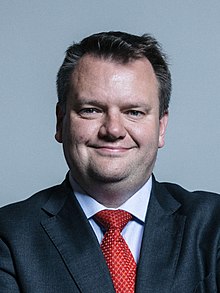The speech made by Nick Thomas-Symonds, the Shadow Secretary of State for International Trade, in the House of Commons on 5 January 2022.
I am grateful to the Secretary of State for her statement and for advance sight of it.
I would say at the outset that we on the Labour Benches are in favour of negotiating trade deals that benefit UK workers and businesses and promote our values around the world, and we will not hold the Government to impossible standards, but we will hold Ministers to what they have promised people they will deliver from the negotiations. Those promises make it even more important that Ministers show strength at the negotiating table and defend UK interests to the utmost. Other countries, in future negotiations, will look at what was conceded to the Australian negotiators and take it as a starting point.
We already have a UK-Japan trade deal that benefits Japanese exporters five times as much as it does UK exporters. A worrying pattern is emerging of not standing up for UK interests. It is what makes the Government’s failure in so many aspects of this deal so costly for the United Kingdom. The Government’s own impact assessment shows a £94 million hit to our farming, forestry and fishing sectors and a £225 million hit to our semi-processed food industry.
The Government claim that they are trying to mitigate that with tariff-free access being phased in over several years, but what is being done is totally inadequate. On beef and sheepmeat, the phasing-in period is 15 years, but the quotas being set by the Government for imports from Australia are far higher than the current level of imports. On beef imports, for example, when Japan negotiated a deal with Australia it limited the tariff-free increase in the first year to 10% on the previous year. South Korea achieved something similar and limited the increase to 7%. But this Government have negotiated a first-year tariff-free allowance of a 6,000% increase on the amount of beef the UK currently imports from Australia. On sheepmeat, in the first year of the deal, the Government have conceded a 67% increase in the tariff-free quota. Why did Ministers not achieve the same as Japan and South Korea?
Why have Ministers failed to ensure that Australian agricultural corporations are not held to the same high standards as our farmers? The Secretary of State mentioned animal welfare standards in her statement, but what the Government have agreed is a non-regression clause. To be clear, that does not mean that the standards will be the same in both countries. That is not fair competition. What will actually happen is that meat produced to far lower animal welfare standards will get tariff-free access to the UK market. So much for the promise of the Secretary of State’s predecessor that the Government had no intention of striking a deal that did not benefit our farmers. Is it any wonder that Australia’s former negotiator at the WTO said:
“I don’t think we have ever done as well as this”?
On climate change, which the Secretary of State mentioned, the COP26 president said, on 1 December, that the deal would reaffirm
“both parties’ commitments to upholding our obligations under the Paris agreement, including limiting global warming to 1.5°.”—[Official Report, 1 December 2021; Vol. 704, c. 903.]
But an explicit commitment to limiting global warming to 1.5° is not in the deal. Perhaps the Secretary of State can tell us what went wrong in those final days. Does the Secretary of State also accept that the failure to include that explicitly in this important deal damages the UK’s ability to lead on climate change on the world stage—[Interruption.] Ministers shout at me, but they told the House on 1 December that it would be included. What went wrong?
The Secretary of State has confirmed that she has asked the Trade and Agriculture Commission, as she is required to do, for advice on the impact of the deal on statutory protections for agriculture. Will she confirm when the Government’s own report will be available?
On scrutiny, why are the Government promising a monitoring report approximately two years after the agreement comes into effect, and every two years thereafter? Why not every year? In addition, the Secretary of State spoke about the impact of trade deals on the whole of the United Kingdom. Can she confirm what steps she will take to address any concerns raised by the devolved Administrations, and how she will formally involve them in the ratification process?
Tariff-free access to our UK market is a prize Ministers should not give away easily. However, looking at the concessions made by this Government, are people not right to worry that the Government are more interested in a quick press release announcing a completed deal than they are in standing up for UK jobs and livelihoods?
